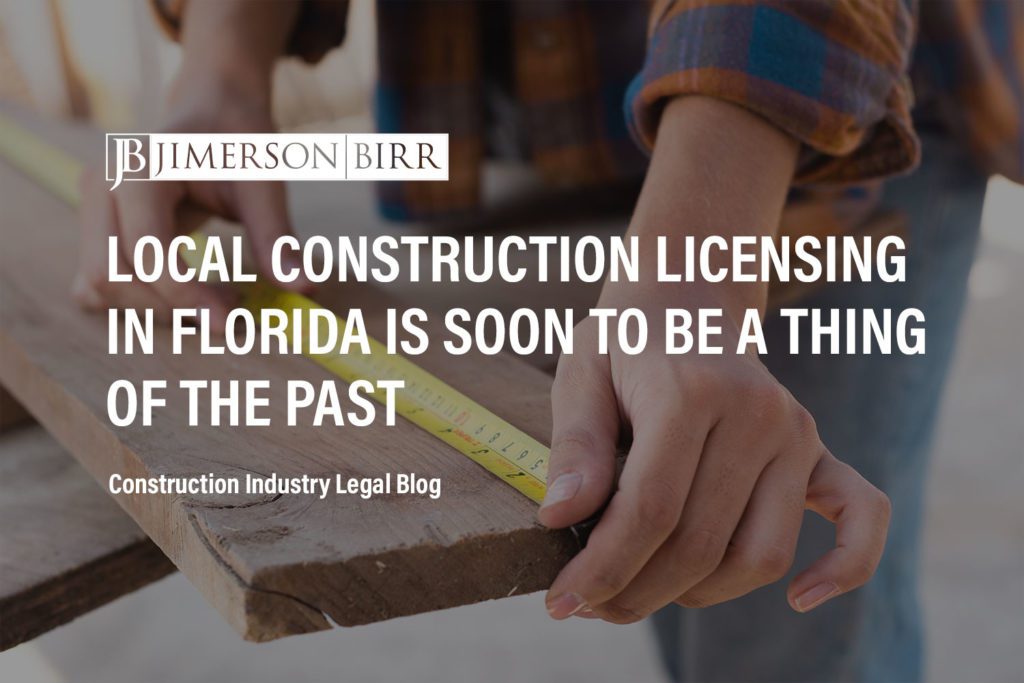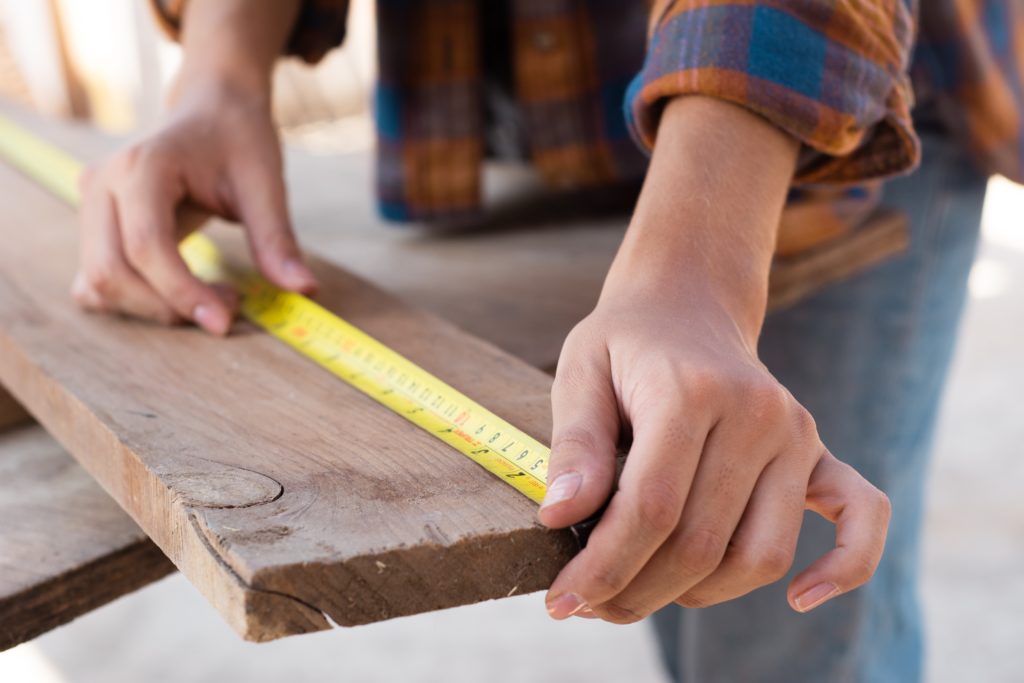A new Florida law, effective July 1, 2021, prohibits local governments from requiring a person to obtain a local contractor’s license for certain types of work, including plastering, painting, and flooring. This new law also phases out local governments from issuing certain types of contractor’s licenses until July 1, 2023, and shifts all contractor’s licensing to the Florida Department of Business and Professional Regulation (“DBPR”).
Previous Law
Prior to the enactment of the new law, local governments, such as counties or municipalities, were not barred from issuing or requiring a person to obtain certain types of contractor’s licenses, which are not required by the DBPR. For example, some local governments required a person to obtain a contractor’s license for painting or erecting a fence within its jurisdiction.
New Changes
Under the new law, local governments are now prohibited from requiring “a person to obtain a license for a job scope which does not substantially correspond to the job scope” of a: general contractor; building contractor; residential contractor; sheet metal contractor; roofing contractor; class A air-conditioning contractor; class B air-conditioning contractor; class C air-conditioning contractor; mechanical contractor; commercial pool/spa contractor; residential pool/spa contractor; swimming pool/spa servicing contractor; plumbing contractor; underground utility and excavation contractor; solar contractor; or a specialty contractor. Fla. Stat. § 489.117(4)(a). The scope of work of each of these contractors is described in Section 489.105(3), Florida Statutes.
Specifically, local governments are now prohibited from requiring a person from obtaining a local license for: painting; flooring; cabinetry; interior remodeling; driveway or tennis court installation; handyman services; decorative stone, tile, marble, granite, or terrazzo installation; plastering; stuccoing; caulking; and canvas awning and ornamental iron installation. Fla. Stat. § 489.117(4)(a). However, local governments are permitted “to issue journeyman licenses in the plumbing, pipefitting, mechanical, or HVAC trades” and “electrical and alarm system trades.” Fla. Stat. §§ 489.1455(1), 489.5335(1).
The new law preempts the licensing of contractors to the DBPR. See Fla. Stat. § 163.211(2). However, any licensing requirements by local governments adopted before January 1, 2021, will continue to be effective until July 1, 2023. See Fla. Stat. § 163.211(2)(a). Those local governments, however, are not permitted to impose any additional licensing requirements or modify such licensing requirements. Fla. Stat. § 163.211(3).
Conclusion
By July 1, 2023, nearly all local contractor’s licenses will be eliminated. At that time, all contractor’s licenses, except for journeyman licenses in plumbing, pipefitting, mechanical, HVAC, electrical, or alarm system trades, must be obtained through the DBPR. Importantly, unless a license is required for work under Chapter 489 of the Florida Statutes, a local government is prohibited from requiring a license for that work.


